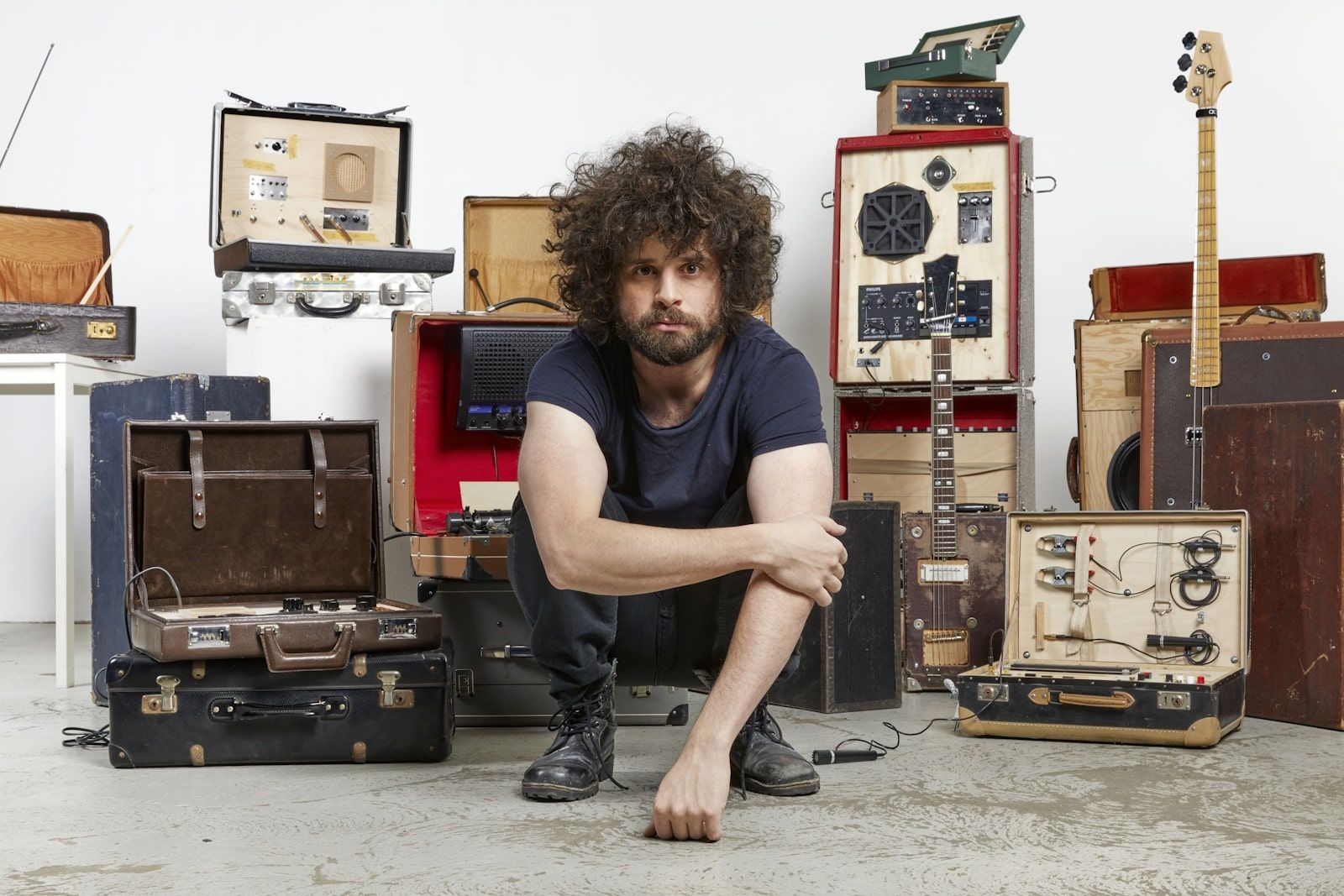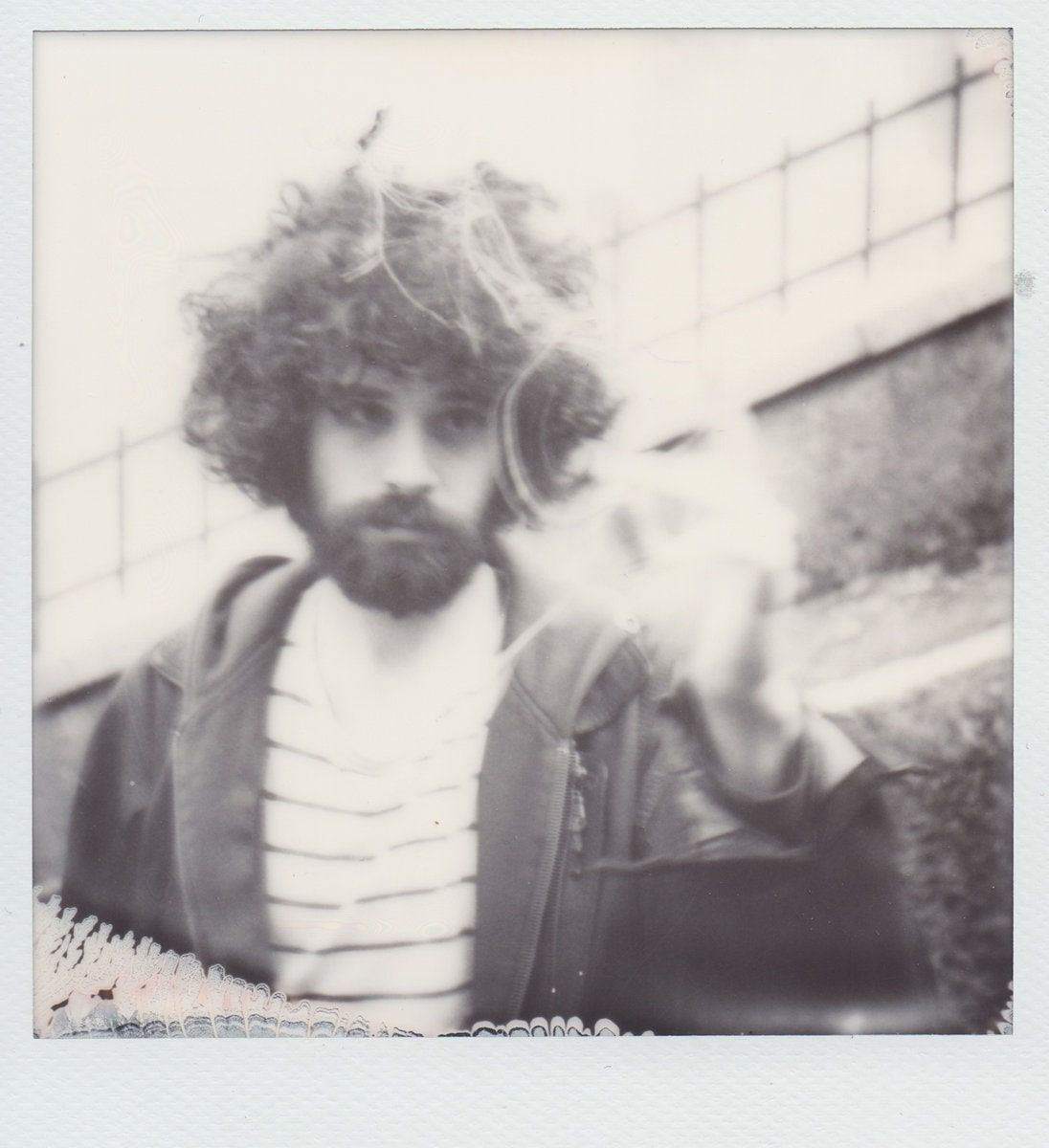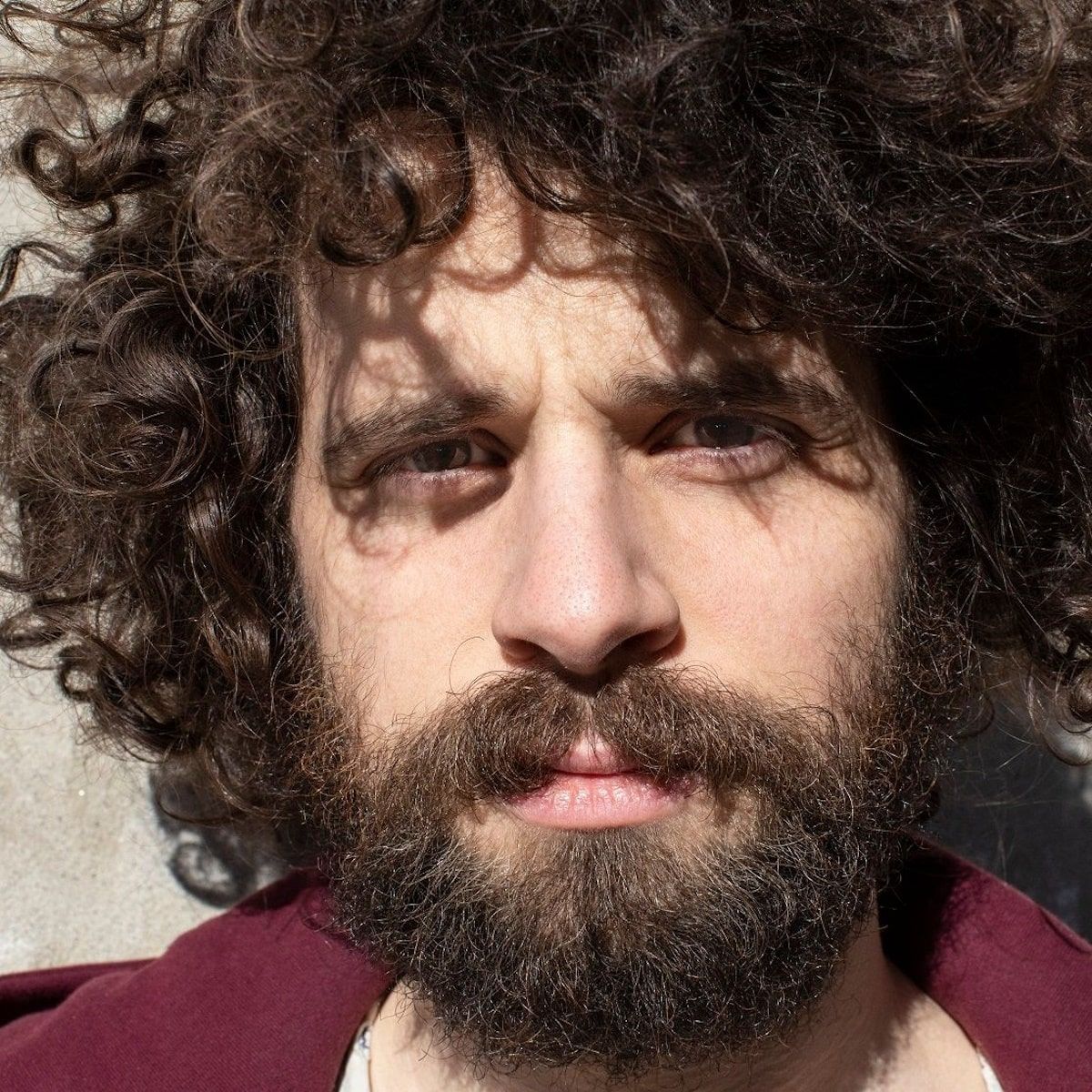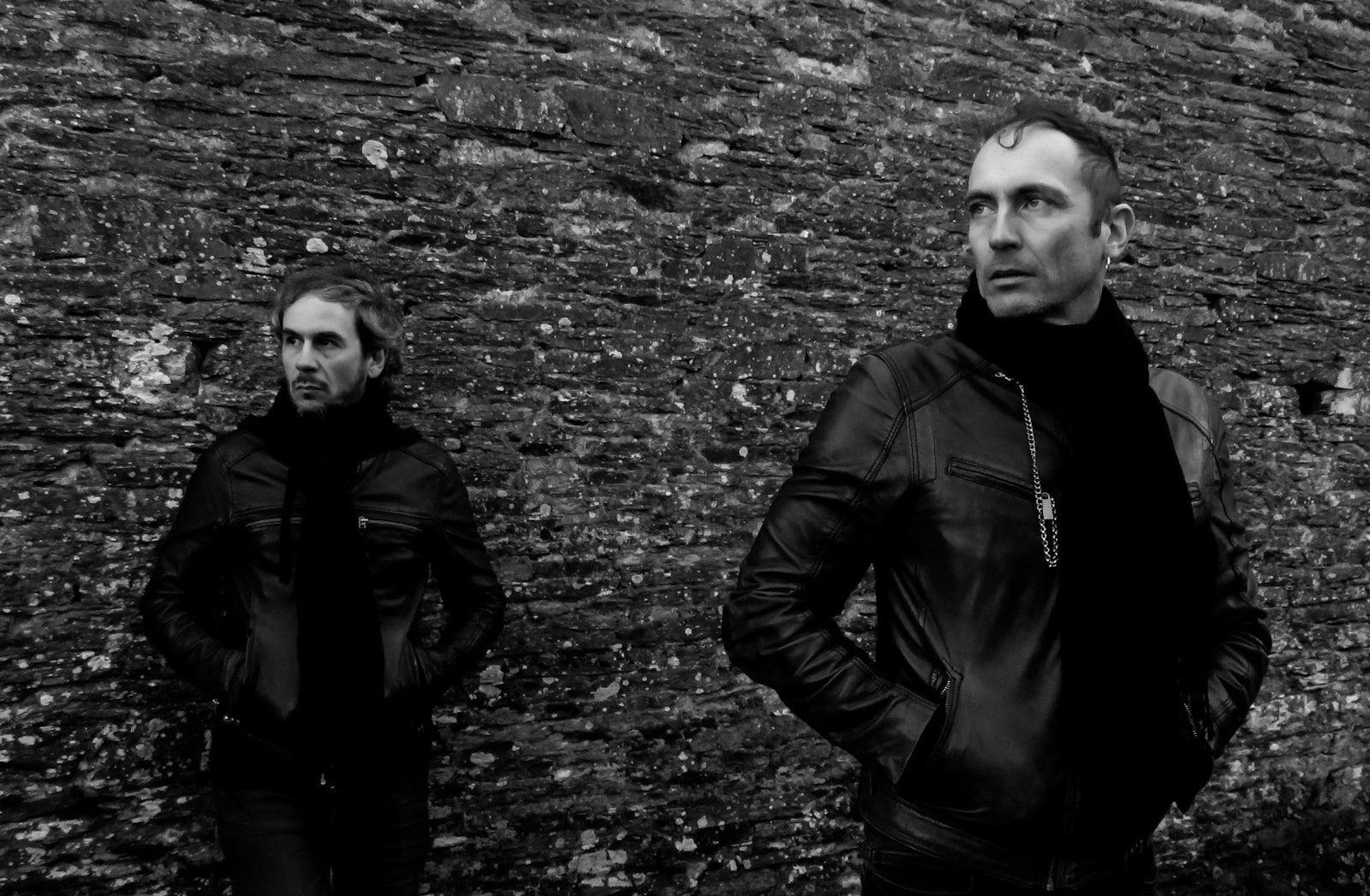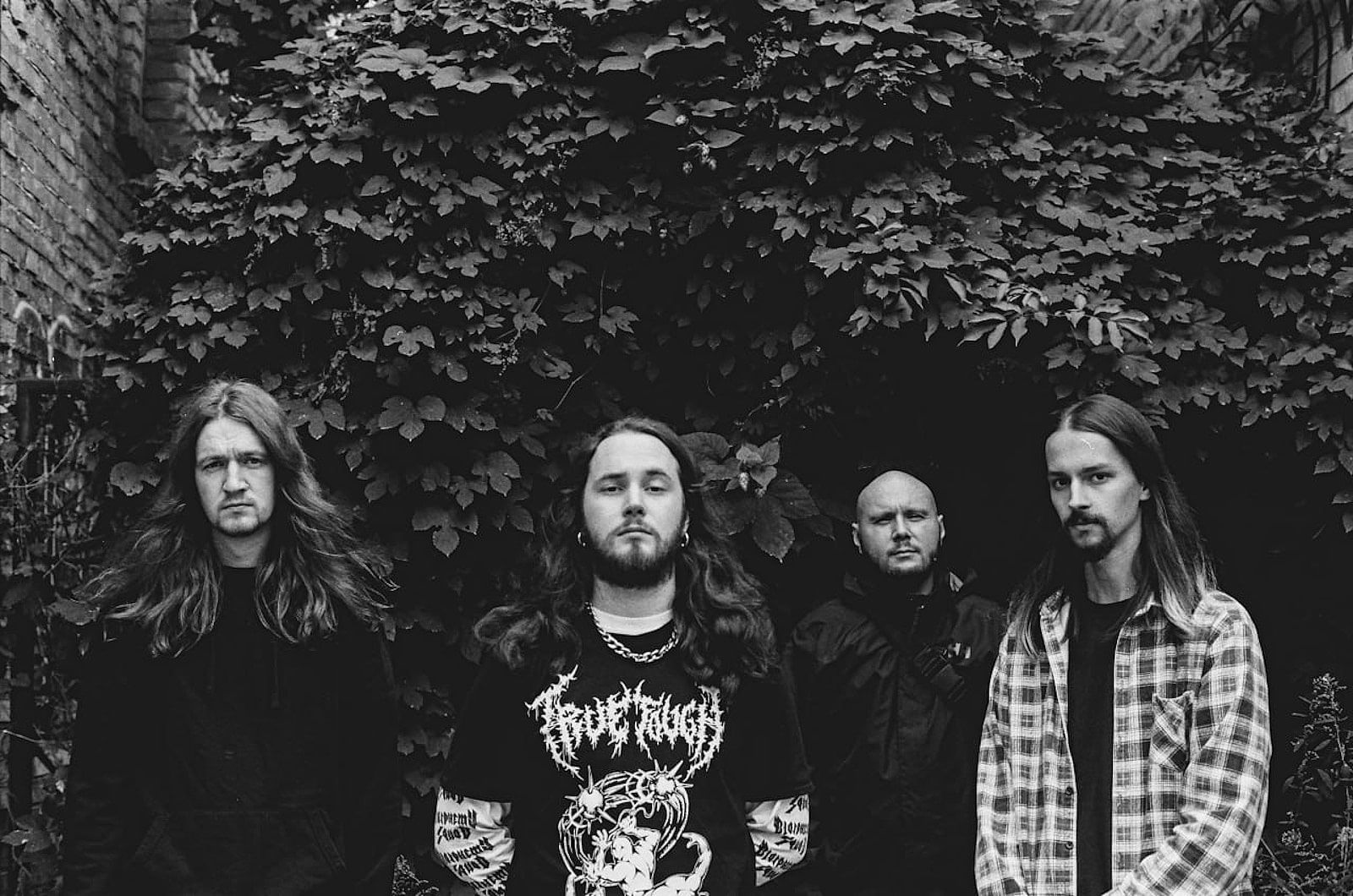Louis Jucker‘s aesthetic oeuvre seems born out of a ceaseless entanglement with life’s transitory realities, particularly with the cyclical ebb and flow of places and things. Perhaps it’s no accident that suitcases—those transient vessels of memory and movement—have become his muse. No mere baggage, these second-hand containers represent the pliable nexus between nomadic existence and artistic expression. Herein lies the distinct beauty of “Suitcase Suite,” a 7-track LP released on Humus Records.
In his latest offering, Jucker invites us to ponder the restless instability of life—its impermanence encased within handcrafted suitcase instruments. These aren’t just audible manifestations; they are sonic vessels that transmit emotional residue and human fallibility. Culled from a journey that began in 2019 as a commissioned writing project by Nouvel Ensemble Contemporain (NEC), Jucker’s latest odyssey bridges the delta between intimate craftsmanship and collective harmony, all while refusing to kowtow to musical conventionalities.
“It’s a rather fragile and melancholic song to remember the abandoned houses and garages we once used as creative or living space…” — Louis Jucker, on his single “The House We Let Them Take”
The third single from the album, “The House We Let Them Take,” unfurls as an elegy to transient spaces and memories. Fashioned with a customized autoharp acquired from a second-hand shop, the song distills an intangible, emotional geography. Its essence lies in the old-sounding vocal tonality—born out of Jucker singing into inverted speakers—an effect that captures a nostalgia so tactile it almost hurts.
“Jucker crafts this emotionally potent offering using the programmable chords of an electrified autoharp, modified for a peculiar and personal sonic imprint. The instrument’s speakers double as microphones, lending his vocals an antiquated tone that imbues the narrative with a yearning for spaces and experiences lost to time.”
Louis Jucker’s “Suitcase Suite” is a fabric of paradoxes—inviting other artists into an intensely personal sphere, melding meticulous craftsmanship with ‘happy accidents,’ and aligning mechanical distortion with poignant lyricism. It is precisely in this contrasting landscape that the album finds its unique resonance.
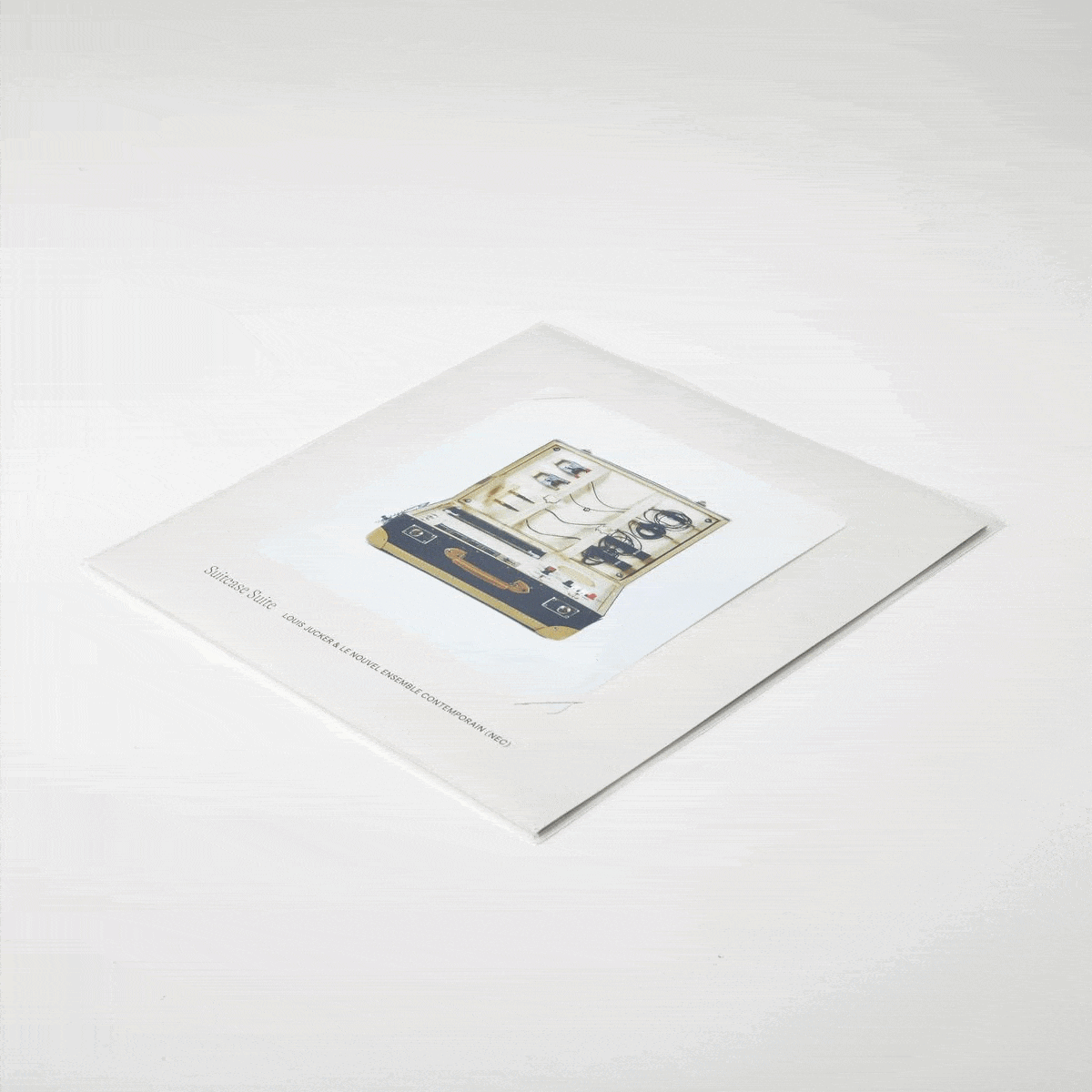
The project that took flight under a set of self-imposed conditions—such as the autonomy to construct all instruments, to perform alongside the orchestra, and to prolong the project beyond the commission’s confines—now exists as a musical body that defies categorization. The Swiss Music Prize winner of 2021 showcases a compelling relationship with time, as it took him four years to bring “Suitcase Suite” to fruition, but the result is neither forced nor contrived.
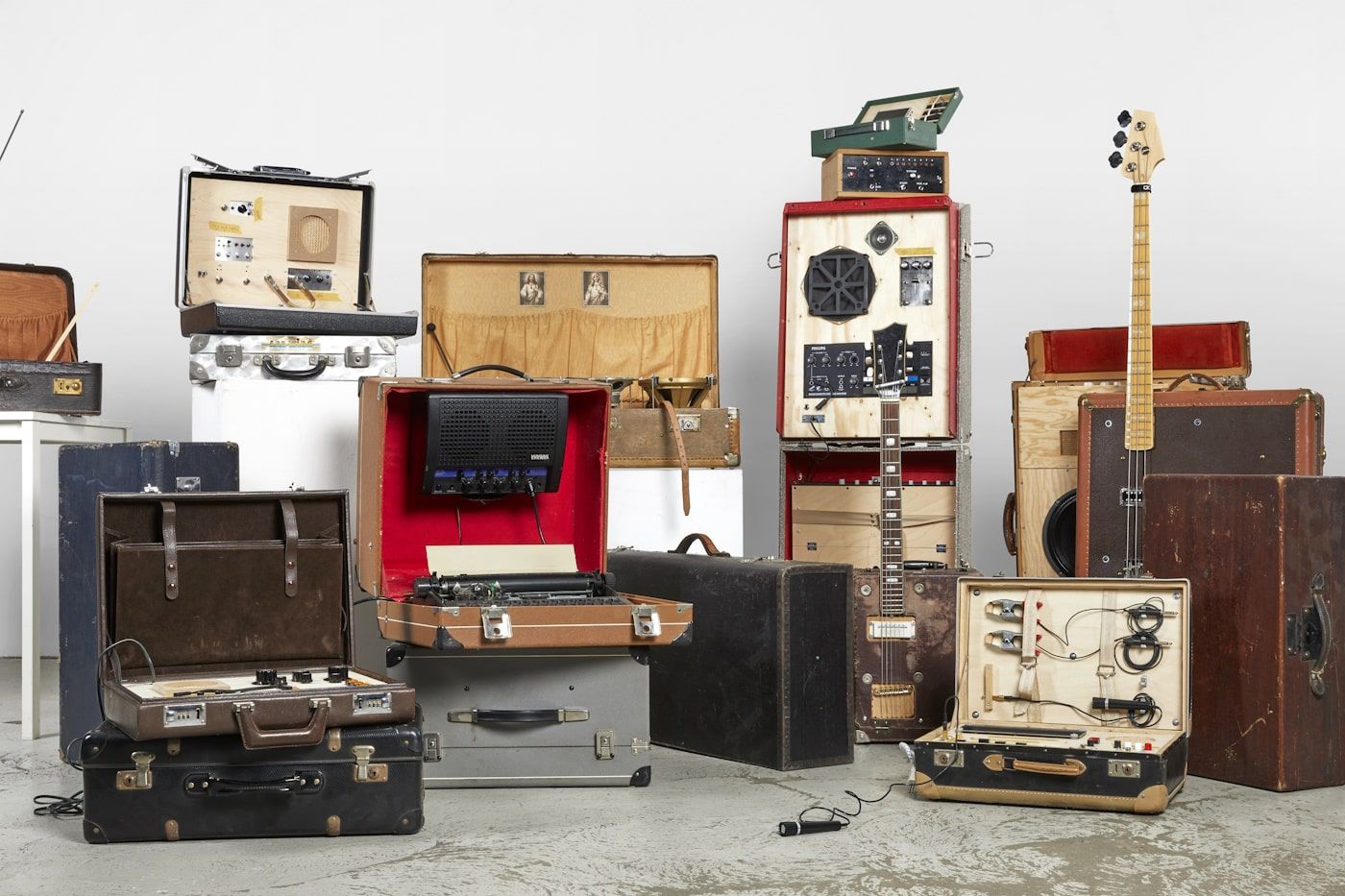
Jucker extends his pursuit of aural intimacy into other mediums and collective collaborations as well. Co-founder of Humus Records and the Mono Hobo association—a networking hub that encourages cross-disciplinary alliances—Louis Jucker is, at his core, a builder of communities and a cultivator of shared experiences, even as he navigates the ebbs and flows of life’s uncertainties.
“Suitcase Suite” and its accompanying visual elements and performances become a portfolio of ephemeral beauty—a diorama of life’s fleeting moments, composed with both melancholy and grace. It’s an invitation to witness, if not fully understand, the fragility of existence through the intricacies of sound. It’s a call to listen, ever so closely, to the quieter murmurs of life.
Please see our full interview with Louis Jucker below.
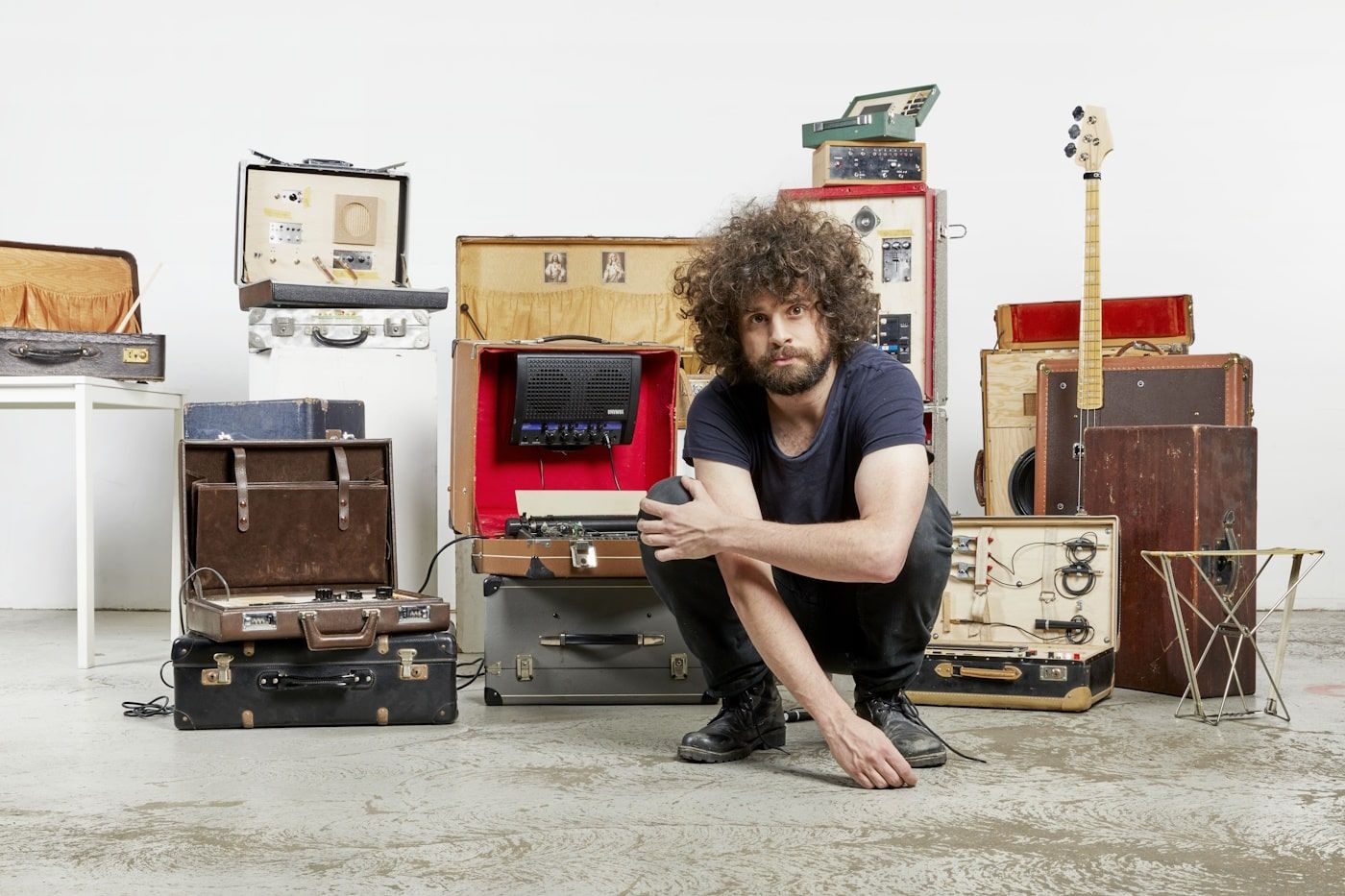
Your latest single “The House We Let Them Take” has a haunting, intimate tone. Give us some more details on this piece. Can you speak more on the decision to electrify the autoharp and use its speakers as microphones?
I found the harp in a second hand store in a small village near my hometown. It was so trashed I really hesitated, but the preprogrammed chords felt really inspiring, so I bought it. I’ve been using old radio speakers as microphones for a while. they have a nice charcoal kind of feel, guess it’s due to the super low impedance. It’s practical : since it’s picking up the sound of the instrument, I can also sing in it.
Your instrument modifications seem like an integral part of your sound. What other customized or homemade instruments will we hear on the album “Suitcase Suite”?
A toy harmonium with its sequenced electric fan. A wave machine that merges a bottle neck single string lap steel guitar and radio transmitters. A weird tabla-like drum with inverted speakers, a multiple pitchshifter turning single note into layered harmonies..etc.
Could you elaborate on how second-hand suitcases influenced the album’s theme and its name, “Suitcase Suite”?
Pretty obvious: all the music was written and recorded using suitcase-housed instruments that I built.
When composing, do you find inspiration in the objects you’re about to tinker with, or do you go searching for objects to fit a pre-existing musical idea?
Both. sometimes I find a thing, than build an instrument and a song around it. sometimes I conceptualize an object for a special function in the orchestra, than try to realize it with objects I find.
You speak about the abandoned spaces that once served as creative or living areas in “The House We Let Them Take.” How much has urban change and gentrification impacted your creative process or subject matter?
I live in an old house with a super cheap rent, and some attic space. If my rent would be higher, I would probably have to work a shit day job, would have less time to invest in creation and the label activities, my work would be poorer and my life sadder. The situation with urban spaces in switzerland is dramatic. Everything is too restricted and expensive. It is seriously killing the scene. Authorities do not seem to realize that. They’re bound to the invester’s interests. Ugly shit.
With a history in punk and hardcore, how do you think these genres continue to influence your current projects, if at all?
DIY is my only bible. whenever i’m in doubt, I reach out to it :-)
Your journey began in 2019 with a writing commission from Nouvel Ensemble Contemporain (NEC). Were there any unexpected turns or revelations as the project took shape over the years?
It’s been a long journey, and I had time to invest every step of it. Building the instruments, arranging the songs with the members of the orchestra, recording it over a two-year period, preparing artwork and videos, then making it a live show. I’m exhausted and happy, so lucky to have been able to fulfill this weird dream of mine.
How did the collaboration with le Nouvel Ensemble Contemporain come about, and how was the experience of blending their classical background with your more experimental style?
The idea behind building new instruments was to avoid virtuosity. We were suddenly all amateurs, discovering a new instrument that had no history. Since the members of the NEC are humble, curious and talented people it turned out to be a very intense and beautidul common experience.
Your music contains elements of Jazz, Techno, Ambient music, and folk. How do you approach genre in your compositions? Is it a conscious blend or more organic?
I don’t give a damn. I like the music that comes out of the instruments, and I write songs with whatever’s feeling right to me. The instruments ensure the coherence of the whole.
The album is described as a journey through “evening shadows and luminous mornings.” How do these contrasting elements manifest in your work, both sonically and emotionally?
My music covers all my emotions, this is a daily hygiene for me. Since I’m made of a lot of different / opposite things, it ranges from super sad droney cloudy depressive beats to light hearted suspended delicate ballads. Never thought my music should convey a single mood… too bad for those f*%!# Spotify playlisting formulars.
You’ve won the Swiss Music Prize 2021. How has this recognition affected you and your work, especially your interactions with the Swiss Alternative Scene?
the swiss alternative scene has got a lot of recognition from the authorities. lots of other DIY musicians have won this prize as well. Switzerland’s official behaviour is odd in many ways regarding the alt scene = they’re happy to give prizes and funding to musicians, but they’re not doing anything to help indie music clubs survive. Doesn’t seem very intelligent to me to say the least.
As a DIY musician and producer, what are some of the challenges you face when balancing multiple roles in the creation and production process?
I’m pretty used to jump from the artist’s to the producer’s seat. That doesn’t mean I’m doing things only by myself. A lot of precious people have helped me in every step of the production. charlie bernat for the engineering, antoine françoise for the arrangements, morgan hug for the mixing and mastering, etc.
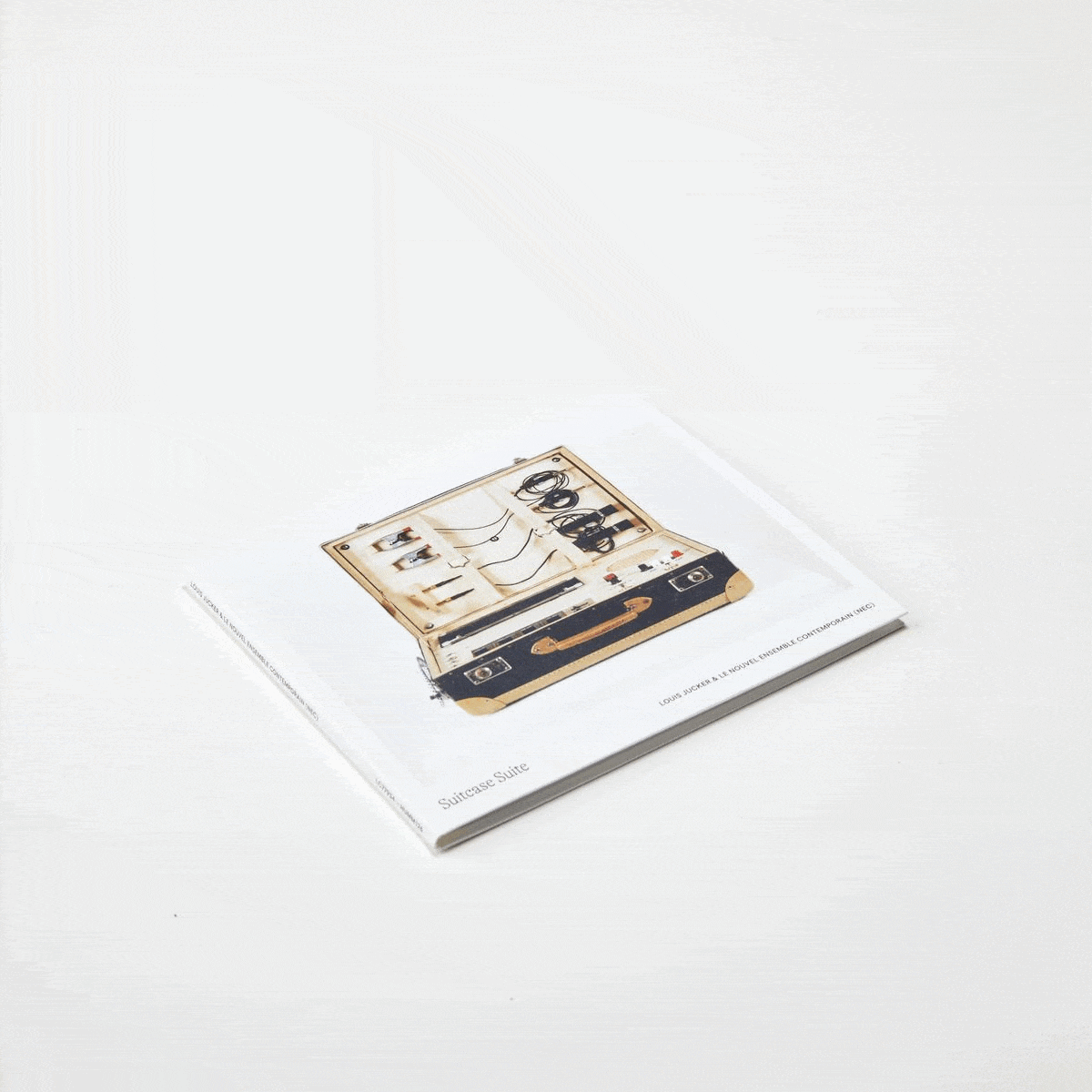
You’ve also been a curator and have founded the Humus Records label. How do these roles influence or intersect with your artistry?
i alway have the final object in mind, even when I’m starting the project. When, how it will be released. How and to whom I will communicate it. This is quite a puzzle, pretty overwhelming if you ask me. Luckily humus is a very collegial entity, and we’re constantly discussing things together.
What are your thoughts on the role of digital platforms like Spotify and Bandcamp in the current musical landscape, especially in relation to indie and DIY musicians?
Spotify is painfully shaping the way people listen to music, everyone knows this is the uber-version of digital streaming latforms. Still everyone is using it, and artists are investing a lot of energy, time and money to have an impact there. super paradoxal.
Bandcamp seems to stand on a much nicer side of things in my opinion. Since you get the opportunity to buy real albums, sold by real people. And no f@# algorythm to spy on you.
You’ve described your shows as being like “mysterious laboratories.” Can you share a bit about what audiences can expect from your upcoming performances?
We bring the suitcases on stage, and open them one after another throughout the show. There’s is also a video system (housed in a suitcase..) that allow people to see what’s happening inside of the instruments, and hopefully understand how musicians are using them. It’s fairly didactical, and that’s ok. This is a way to make it inclusive and fun for everyone. Kids love it. Boomers too.
Are there any artists or movements, within or outside of Switzerland, that you feel resonate with what you’re doing now, or that inspire you in some way?
I feel part of a rich DIY scene, spread all over the country. Together we’re trying to be less bored and spoiled. So many cool labels at the moment ! (blaublau, a tree in a field, on the camper, table basse, burning sound, bongo joe, cheptel, etc.) and precious initiatives like “helvetia rockt” or “music declares emergency” for example.
Your project involves a lot of sonic experimentation. Are there any soundscapes or textures you’re eager to explore in future projects?
I might shoot for smoother, more acoustic sounds. but who knows what the future holds. I’m currently working on the conception of a machine that should allow us to record music without electricity. should be fun.
If you could collaborate with any artist, living or deceased, who would it be and why?
I would have loved to collaborate with early swiss punk musicians like lilliput/kleenex. And I’m still dreaming of a dance/music performance with my scottish friend Iona Kewney.
How has the pandemic impacted your music-making process, if at all?
Gave me more time to work on this project. and more time spent with people I love. Made everything sort of more real and important. And built a lot of frustrations off course.
Finally, what’s next for Louis Jucker after the release of “Suitcase Suite”? Any new sonic territories you’re excited to explore?
I will tour this record as a solo act and together with the orchestra. I already have few new songs written for a next record, but def. not in a hurry, since I might soon start touring again as coilguns singer. can’t wait. Thank you for your attention and precise questions!



